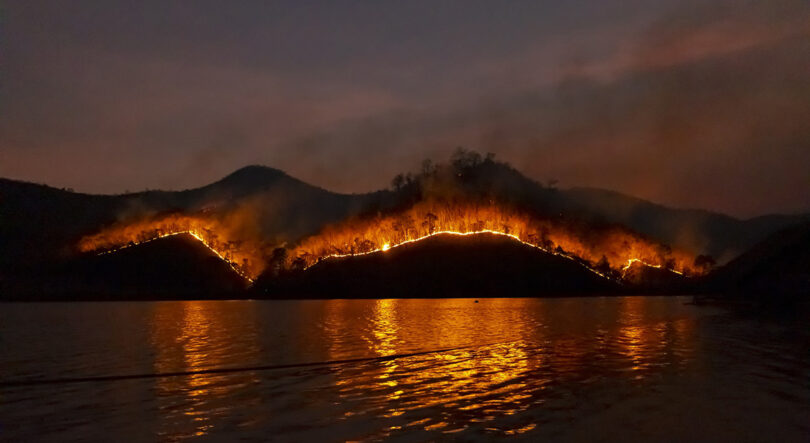What can Colorado’s electric co-ops do to mitigate risks in our communities?
With each passing day, the toll of the devastating wildfire that swept through the town of Lahaina on the Hawaiian island of Maui on August 8 becomes clearer. As I write this column, the death toll exceeds 100, but it seems likely to go much higher as recovery efforts continue in what’s left of the town. In addition to the loss of life, it’s clear that the property damage will be in the billions of dollars, and the impacts on the culture and history of Lahaina are incalculable. I’m sure I speak for everyone associated with the Colorado electric co-op community in extending our sincere prayers to those who were lost and their friends and families.
As the initial shock of this event wears off, many people are asking questions about what caused the disaster and whether anything could have been done to mitigate the terrible outcome. Some have suggested that emergency warning systems should have been deployed to alert people to the oncoming fire. Others have questioned whether the local electric company could or should have preemptively de-energized parts of its electric system when the hurricane-force winds began.
There will no doubt be many investigations about these matters, but it would be irresponsible for me or anyone else so far removed from the Maui fire to weigh in without all the facts; blame and speculation will not bring back loved ones or restore property.
At this writing it’s not clear what ignited the fire, but one possible cause is downed power lines. As we have seen in similar circumstances in other states, high winds can have a devastating effect on power lines despite the efforts of electric utilities to maintain and care for those facilities.
Unfortunately, this tragedy paints a horrifying picture of the risks that many Colorado residents face every day in our wildfire-prone and windy state. In fact, a recent study concluded that over 300,000 homes in Colorado are at higher risk of wildfire damage since they are situated within the wildland-urban interface, including the foothills west of Denver, Boulder, Fort Collins, Colorado Springs, and Pueblo. As we saw with the Marshall Fire that devastated communities in Boulder County and with the Waldo Canyon Fire that destroyed hundreds of homes in Colorado Springs, wind-driven conflagrations can happen literally in the blink of an eye.
So, what can Colorado’s electric utilities do to lessen the chances of one of these heartbreaking catastrophes? While there is no perfect solution, utilities are working hard to protect their communities while keeping the lights on. Your local electric co-op works diligently with state and local governments to identify high-risk areas and to encourage homeowners to clear brush and trees away from their residences. It also means the deployment of many types of technologies to mitigate the risks, anticipate equipment failure, and detect fires at an early stage. In some cases, Colorado’s electric co-ops have developed microgrids to ensure that power is maintained during natural disasters including wildfires.
You may hear the suggestion that all existing electric utility lines should be moved underground; this practice is typically only used with new facilities. Unfortunately, this is not practical in many areas, and it would cost billions of dollars and take decades to achieve. Most electricity consumers would not support the rate increases needed to undertake extensive undergrounding of power lines.
Some Colorado electric utilities are also deploying a program of “public safety power shutoffs,” which means that in very limited circumstances a utility will de-energize one or more circuits on its system in anticipation of certain weather events. This is done to limit the potential for fire ignition in the event poles and wires are toppled in a storm. While utilities never want to shut off power delivery to their customers, in some cases that may be the more prudent action to avoid a much worse situation. In California, for instance, Pacific Gas & Electric recently reported to the state’s public utilities commission that a shutoff will significantly lower the risk of wildfires ignited by utility equipment.
The scenario that unfolded on Maui is the worst nightmare for every CEO, board director, and employee of every electric utility in this country. In Colorado, many electric co-op communities have been significantly impacted by wildfires in recent years — we are keenly aware of the risks. Co-ops remain vigilant and are doing everything possible to protect our communities.
Kent Singer is the executive director of CREA and offers a statewide perspective on issues affecting electric cooperatives. CREA is the trade association for 21 Colorado electric distribution co-ops and one power supply co-op.

